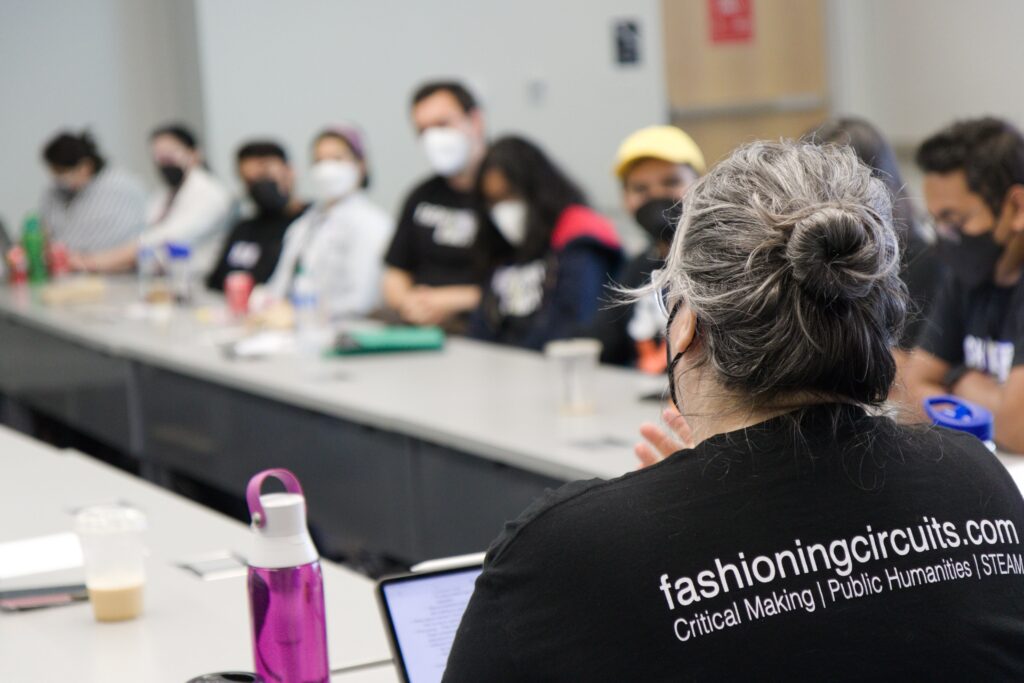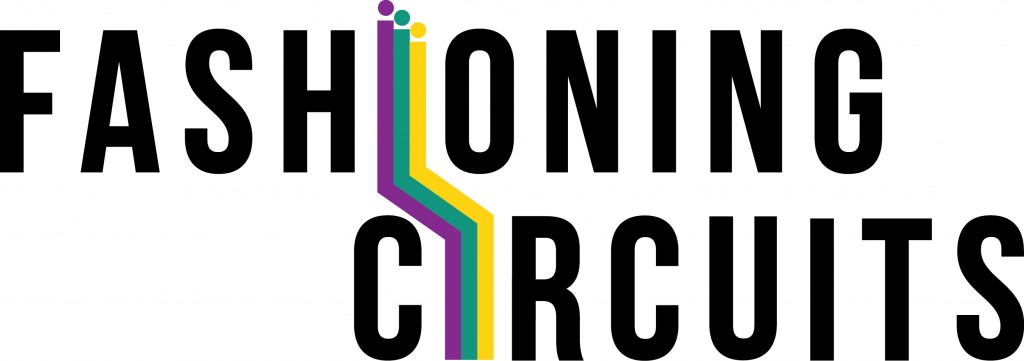Throughout this year, Dr. Knight, Dr. Llamas-Rodriguez, and the Fashioning Circuits team were working on the Migrant Steps Project, a Digital Humanities project that seeks to intervene in popular narratives about migration and mobilize walking a tool for embodied reflection through repurposing Fitbit technology. My name is Luke Hernandez, and I was a Master’s Student working on the Humanities Team of the project.
The Migrant Steps Project objective is to make explicit the structures that shape
conditions of migration. By working with Fitbit Technology, the Project is developing an appthat has users engage with migrant stories in impactful ways. For example, one way a story can be shared if a user walked a certain number of steps and a short blurb will be shared with the user. Since I was part of the Humanities Team, we are responsible for reading through material like novels and films about migration narratives and having that content be shared through the App for users to engage with.
The Project had all these great ideas, but we knew we had many hurdles to think and work through together in both the technological and conceptual limits of this project. We were all aware that this project has the potential to manufacture artificial empathy and we endeavored to avoid the claims that the app would allow people to walk “like” a migrant. Rather, we made it clear that this app was to share migrant experiences that was curated in a genuine way that shares diverse migrant narratives, develops creative literacy, and raises attention to migrant issues around the globe.
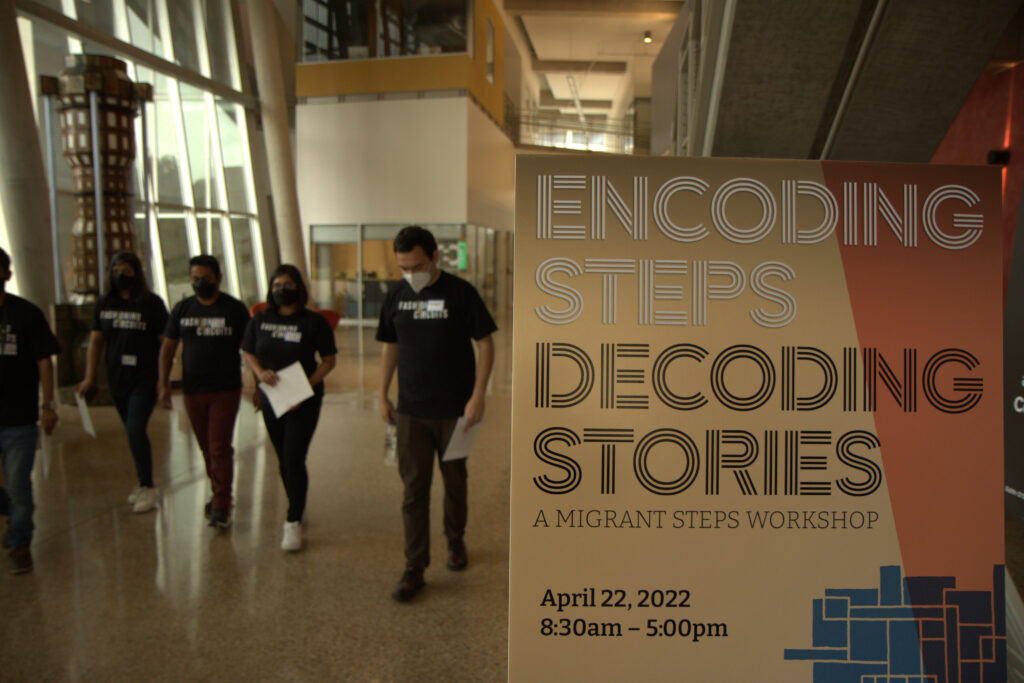
So, on April 22, 2022, the Migrant Steps Project held the Workshop “Encoding Steps, Decoding Stories” and invited experts in the field of digital humanities and members of the public to collaborate with the trajectory of this project. I was attending the workshop as both part of the team and a presenter regarding the Humanities portion of the project. The workshop had a great turnout and amazing conversations about our next steps, which I will detail later.
The workshop officially began around 8:30 AM with registration and provided breakfast. I had banana bread and an iced chai latte. I want to shout out to the student worker at Lemma Coffee at the ATEC building: thank you for being open and proving food and drinks for the event. After breakfast and chatting with our participants, Dr. Knight and Dr. Llamas-Rodriguez began introducing the Migrant Steps Project to community members and telling our goals, objectives, and the work we had done so far. After the introduction the workshop kicked into full swing, and we began the first activity at 10:30 AM.
The first activity was called “Walking as Embodied Reflection” and community members were given a paper, pen, and map of the UTD campus and were told to walk and reflect about their journey. Personally, it was rather hot on April 22 in Texas, so I stayed inside but when people came back from their walks, they shared their insights in paying attention to movement and their surroundings. This would set the tone of the workshop where the Project wants to bring attention to “Data Visceralization” where data is felt in ways that resist easy or straightforward interpretations but engages with communities through walking and movement.
After the activity, we took a short break and resumed the workshop at 11:00AM. The project has two teams, the Humanities Team and the Tech Team. Both Teams are comprised of students involved in Fashioning Circuits who have become involved in the Migrant Steps Project. The Humanities team presented about content about migration and the process in which material will be shared with the users in an impactful way. Following up the Humanities, the Tech Team are the coders, developers, and designers of the App. They presented how the application would look and worked on the back end and front end. I am no coder, but it was amazing how much the students in the Tech team were able to prototype for the potential Migrant Steps App.
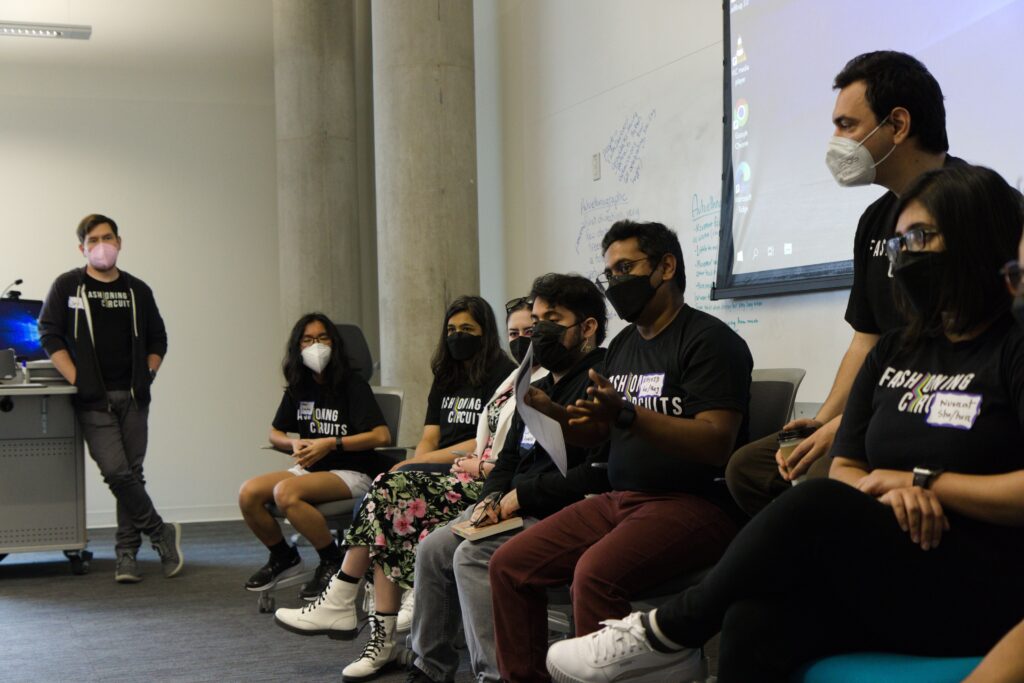
After the presentations from the students on the Migrant Steps Project, we had my favorite event session: Free Lunch! We had Royal Deli Sandwiches catered. I remember the pasta being delicious but also very slippery. We finished lunch around 1:00pm and then immediately went into our last major session, the Big Questions Birds of a Feather session. After presenting the Project to the Audience and our intentions and objectives, this afternoon session alone would put the “work” in “workshop.”
But what is a “birds of a feather” style of engagement? I never heard the term before, but it is when a table has a specific topic about the Migrant Steps Project that participants engage through for a couple of minutes and then after 15 mins, the participants go over to the next topic table. This set up allows everyone in the workshop to think through important topics and later reconvene into a larger group and share their thoughts and ideas at the end. This is productive for this kind of workshop because we had four topics facilitated by students in both the Humanities and Tech Teams. The four topics where Mediated Visualization (Design), Literature Engagement, Ethics, and Technical Limitations.
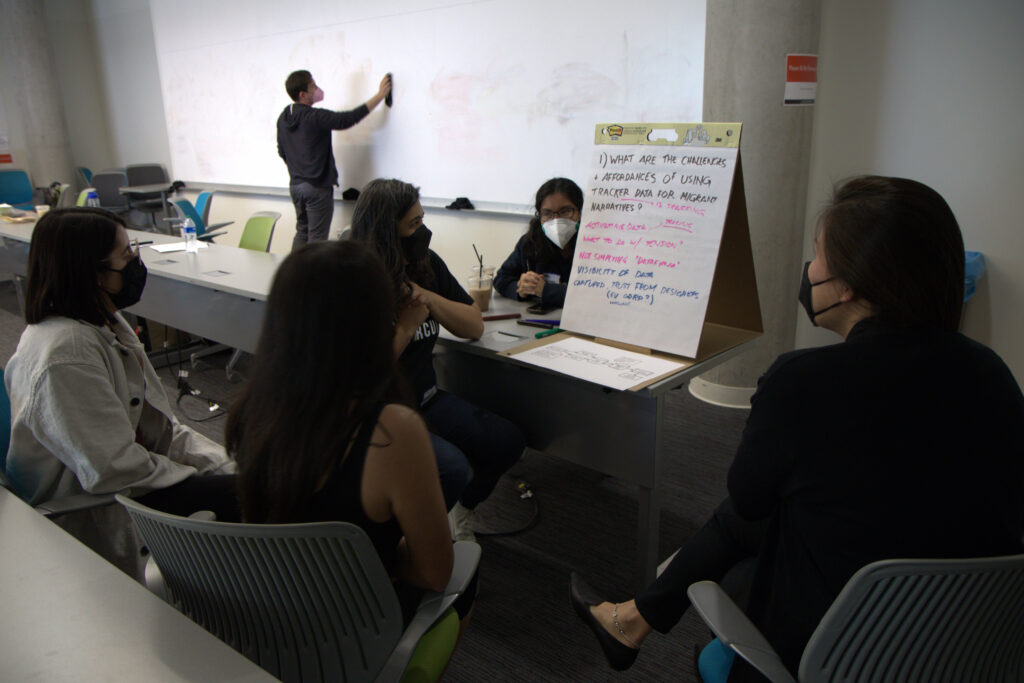
I helped facilitate the Mediated Visualization topic table which was basically about the design of the project. For example, one question we engaged with was “How could a story of migration/movement be shared through the app in an impactful way that avoids exploitation?” A tough but important question, especially when this project focuses on migration mediated through a technological platform.
We actually went over time but everyone in the workshop was absolutely invested in thinking through the topics in each topic table and creating ideas together. We took our final snack break around 2:30PM. After everyone got recharged from coffee and snacks, at 3:00PM we debriefed from the birds of the feather session and mapped the next steps for the Migrant Steps Project.
And what a debrief it was! The participants of the workshop gave us so much feedback ranging from conceptual to the technical regarding how the app can be improved and more impactful. One critique during the debrief session that stuck with me to this day was regarding its design. The main focus of design with the app is to share migration narratives to users after walking a number of steps or distance, but one participant suggested about different avenues of sharing content, not just walking. For example, having the app coded to share a story after a certain number of hours passed or even sharing a story when the full moon comes! I thought that was a great idea because during the big group, we all agreed that we should be careful not to “gamify” the migration experience through the app. It is a great thing we wrote down the ideas during the debrief because looking through the notes after the workshop we have two full pages of suggestions and amazing feedback!
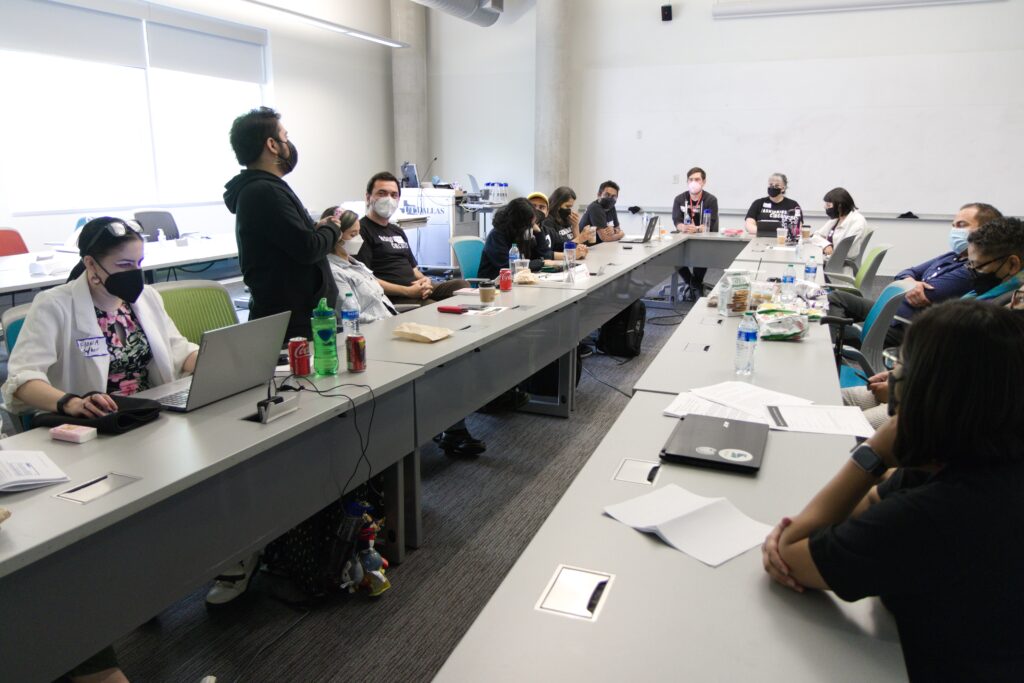
The workshop finally concluded around 5:00PM and I remembered my brain being so sore. We bounced around so many ideas and received so much great feedback from experts from the field and from the public. The workshop was a resounding success, I would say.
So, what are our next steps? (Haha) Flash forward to the Summer of 2022, our team has incorporated so much feedback gathered from the workshop and we are still improving the project to its full potential. We submitted applications to funding agencies as we are thinking through what is needed for a working prototype. As for me, I will continue to work on this project but not as a Master’s Student but as a PHD student at ATEC UT Dallas! I am excited to see how the project will help people in the future. Stay tune for more updates regarding the Migration Steps Project!
